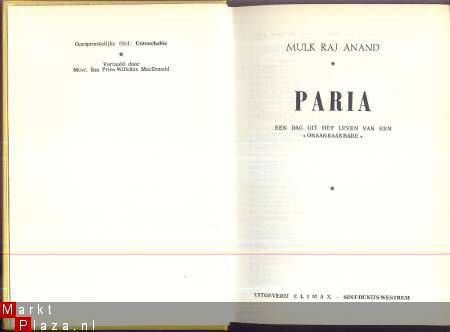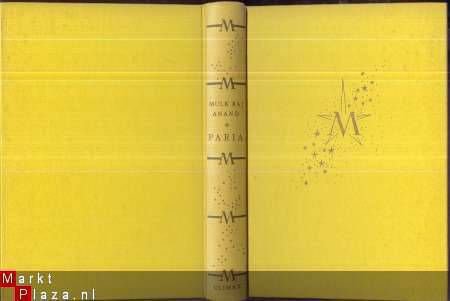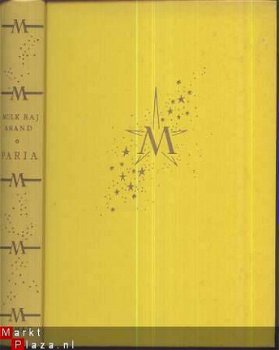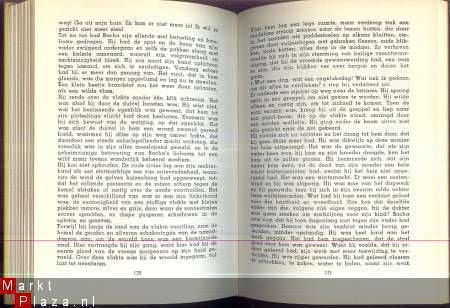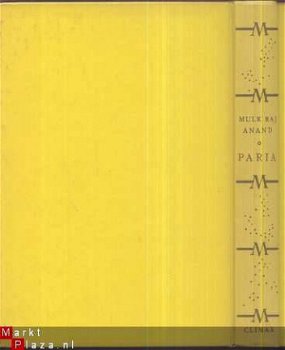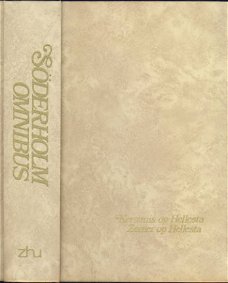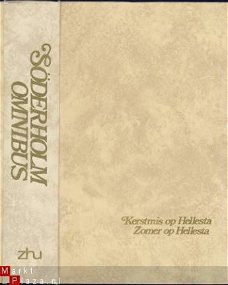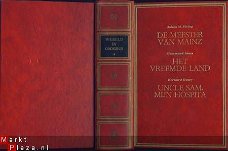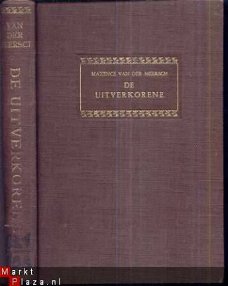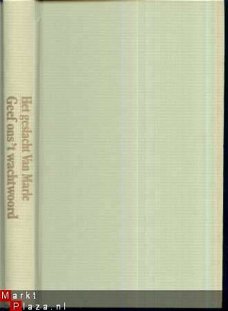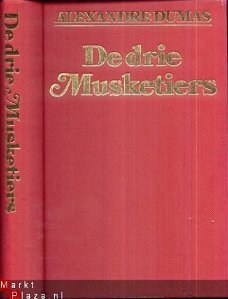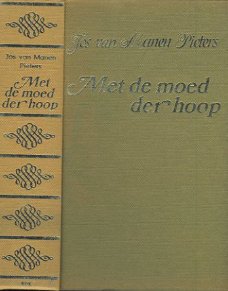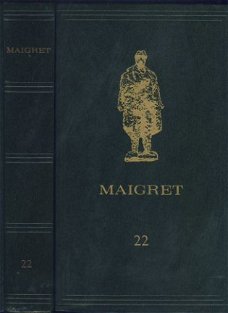
MULK RAJ ANAND**PARIA* UIT HET LEVEN VAN EEN ONAANRAAKBARE**
Kenmerken
- Conditie
- Gebruikt
- Levering
- Niet van toepassing
Omschrijving
MULK RAJ ANAND
** P A R I A **
**UNTOUCHABLE**
**EEN DAG UIT HET LEVEN VAN EEN **ONAANRAAKBARE**.
VERTAALD DOOR MEVR. INA PRINS-WILLEKES MAC-DONALD.
UITGEVERIJ CLIMAX SINT DENIJS WESTREM.
ARTIKEL INVENTARIS CODE 3.547
FORMAAT 193 X 135 X 24 + 240 PGS + 367 GRS.
VERZENDING IN BELGIE 3,95 EURO NR NEDERLAND 8,50 EURO.
**CE N'EST QUE DANS LA SOLITUDE QU'ON SE RETRROUVE **dixit MME DE STAËL (GERMAINE NECKER.)
**THE SINCERE ALONE CAN RECOGNIZE SINCERITY.**
dixit THOMAS CARLYLE
Mulk Raj Anand (December 12, 1905 - September 28, 2004) was an Indian writer in English, notable for his depiction of the lives of the poorer castes in traditional Indian society. One of the pioneers of Indo-Anglian fiction, he, together with R.K. Narayan, was one of the first India-based writers in English to gain an international readership.
Life and work
Born in Peshawar, he studied at Khalsa College, Amritsar, before moving to England where he attended University College London as an undergraduate and later Cambridge University, graduating with a PhD in 1929. During this time he forged friendships with members of the Bloomsbury Group. He spent some time in Geneva, lecturing at the League of Nations' School of Intellectual Cooperation.
Anand's literary career was launched by family tragedy, instigated by the rigidity of the caste system. His first prose essay was a response to the suicide of an aunt, who had been excommunicated by his family for sharing a meal with a Muslim. His first main novel, Untouchable, published in 1935, was a chilling exposé of the day-to-day life of a member of India's untouchable caste. It is the story of a single day in the life of Bakha, a toilet-cleaner, who accidentally bumps into a member of a higher caste.
Bakha searches for a salve to the tragedy of the destiny into which he was born, talking first with a Christian missionary and then with a follower of Mahatma Gandhi, but by the end of the book he concludes that it is technology, in the form of the newly introduced flush toilet that will be his saviour. While the toilet may deprive him and his family of the traditional livelihood they have had for centuries, it may also liberate them in the end by eliminating the need for a caste of toilet cleaners.
This simple book, which captured the puissance of the Punjabi and Hindi idiom in English was widely acclaimed and Anand won the reputation of being India's Charles Dickens. The introduction was written by his friend, E. M. Forster, whom he met while working on T. S. Eliot's magazine Criterion. In it Forster writes: "Avoiding rhetoric and circumlocution, it has gone straight to the heart of its subject and purified it"
Inevitably, Anand, who spent half his time in London and half in India, was drawn to the Indian independence movement. At the same time, he also supported freedom elsewhere around the globe and even travelled to Spain to volunteer in the Spanish Civil War. He spent World War II working as a scriptwriter for the BBC in London, where he became a friend of George Orwell.
Anand returned to India in 1946, and continued with his prodigious literary output there. His work includes poetry and essay on a wide range of subjects, as well as autobiographies and novels. Prominent among his novels are The Village (1939), Across the Black Waters (1940), The Sword and the Sickle (1942), all written in England, and The Private Life of an Indian Prince (1953), perhaps the most important of his works written in India. He also founded a literary magazine, Marg, and taught in various universities. During the 1970s, he worked with the International Progress Organization (I.P.O.) on the issue of cultural self-comprehension of nations. His contribution to the conference of the I.P.O. in Innsbruck (Austria) in 1974 had a special influence on debates that later became known under the phrase of dialogue among civilizations.
Private Life of an Indian Prince, were more autobiographical in nature, and in 1950 Anand embarked on a project to write a seven-part autobiography, beginning with Seven Summers. One part, Morning Face (1968) won him the National Academy Award. Like much of his later work, it contains elements of his spiritual journey as he struggles to attain a higher sense of self-awareness.
He died in Pune.
